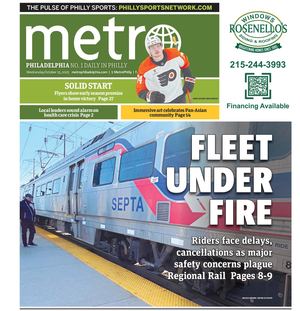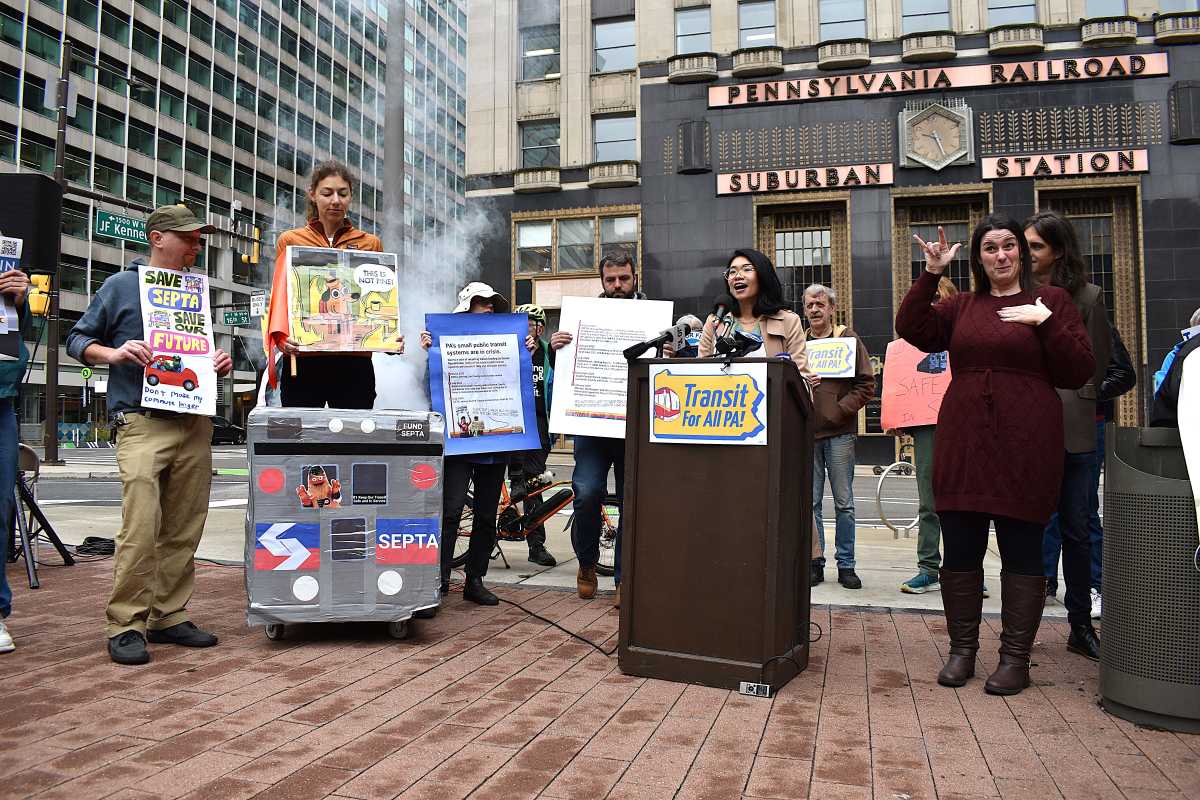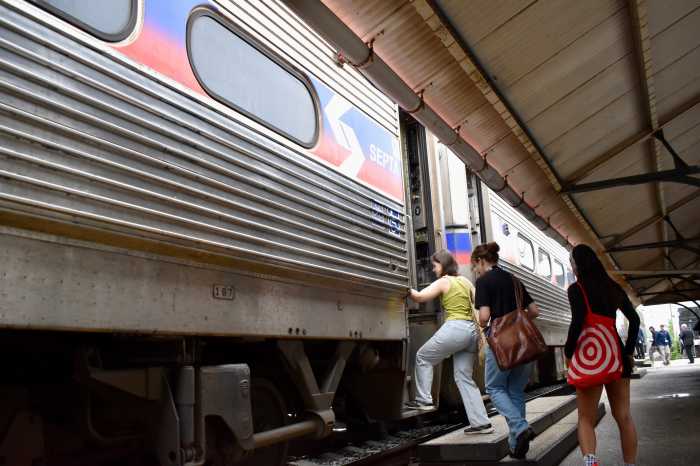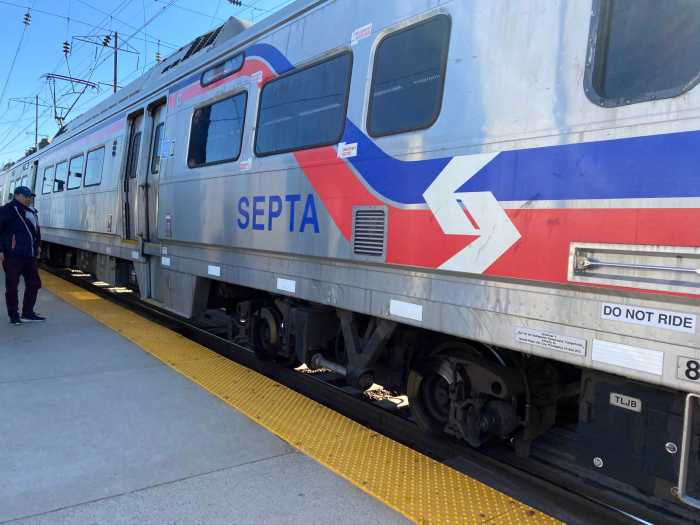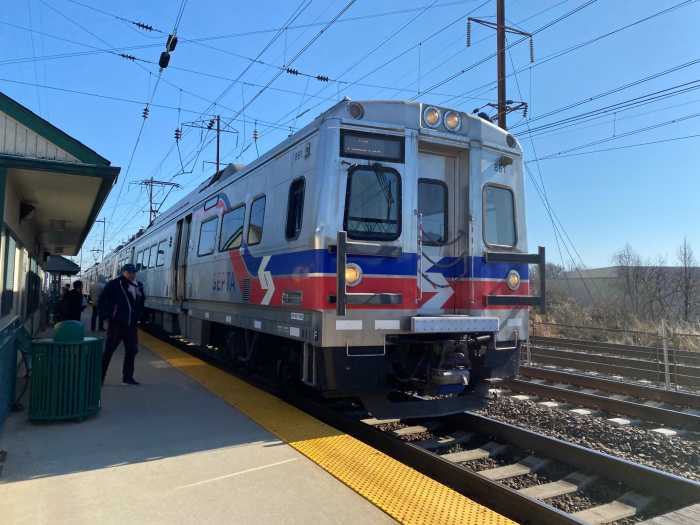A month ago, SEPTA restored dozens of bus routes after Gov. Josh Shapiro’s administration permitted the authority to repurpose nearly $400 million in capital dollars to cover day-to-day operations.
In the weeks since, Shapiro and Harrisburg lawmakers have not resolved the state budget impasse, even though transit funding was presented as a key issue preventing an agreement.
And now SEPTA is in the midst of a new crisis.
Federal regulators, in response to five fires between February and late September, ordered the transit agency to thoroughly inspect its 50-year-old fleet of commuter train cars and rectify the problem.
Regional Rail riders have been feeling the impact since the Oct. 1 directive, with a significant number of cancellations, delays and overcrowded trains.
“We’ve said every step of the way that robbing capital was tempting fate,” said Connor Descheemaker, campaign manager for Transit for All PA.
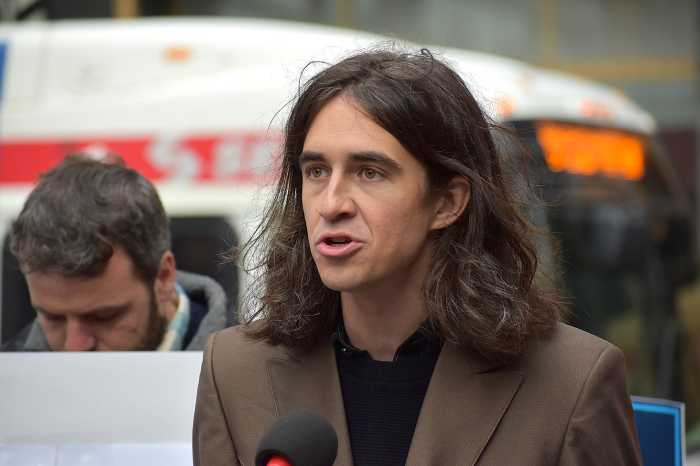
Transit advocates pressured legislators for months to come up with a transit funding solution before the Pennsylvania Department of Transportation approved SEPTA’s request to pull from the capital budget, which is typically used to pay for infrastructure improvements.
They renewed their call Tuesday morning during a rally at Love Park, against the backdrop of Suburban Station’s Art Deco facade and the ongoing uncertainty around Regional Rail.
“SEPTA connects our neighborhoods to the rest of the city, but right now, that connection is breaking,” said Madison Nardy, of the Northeast Philadelphia-based 215 People’s Alliance. “For over a week, riders have faced chaos on the Regional Rail.
“The federal government had to step in and force SEPTA to pull unsafe cars off the tracks because they were too dangerous to ride. That is what decades of disinvestment looks like, a system that is so neglected that it’s literally burning.”
Particular ire was directed at the GOP state Senate majority, who transit supporters blame for blocking funding for public transportation across Pennsylvania. Shapiro and the Democrat-controlled House has repeatedly put forth proposals allocating a greater share of sales tax revenue to transit, but the measure never picked up the necessary support in the upper chamber.
“It is shameful that our state legislature and the Senate Republicans are playing a game with people’s lives,” state Rep. Rick Krajewski, a Democrat from West Philadelphia, said. “All of a sudden, everyone in Indiana County cares about fare evasion.”
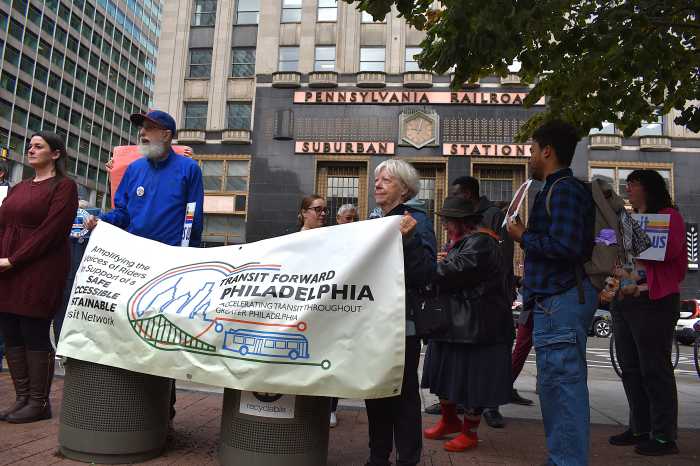
Next month, SEPTA’s board will consider a budget amendment accounting for the $394 million in capital money that will need to be reallocated to maintain service levels over the next two years.
Authority leaders have proposed postponing the purchase of buses; a project to make the Bristol rail stop accessible for people with disabilities; and construction of a new facility at the Frazer railroad site.
The deferred initiatives are on top of 44 capital projects SEPTA delayed or reduced during its most recent budget process due to a lack of funding. Transit officials have said the system’s repair backlog totals more than $10 billion.
Replacing the Silverliner IV fleet, which is being scrutinized for the fires, is another massive capital expense, and SEPTA will almost certainly need a loan to buy new train cars, according to transit officials. Scott Sauer, the authority’s general manager, has estimated that the process would cost $2 billion and take more than five years.
“For decades, chronic underfunding has forced SEPTA to stretch aging infrastructure and vehicles far beyond their intended lifespans,” Sauer wrote in a message to riders Monday. “The result is what the region is experiencing today – a system doing its best under the weight of deferred investment.”
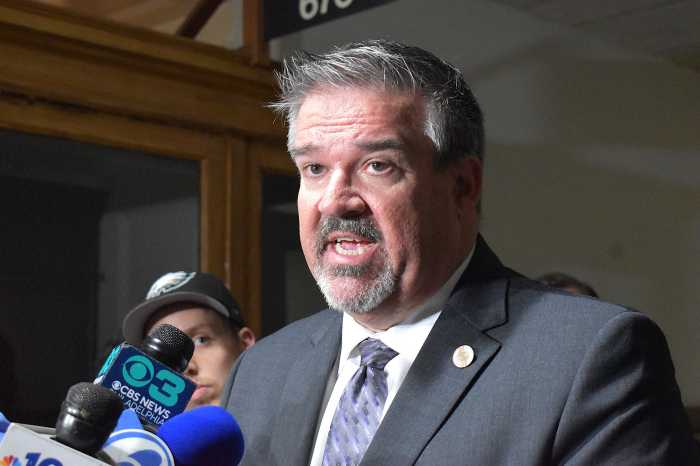
The Silverliner IV cars, which hit the tracks in the mid-1970s, comprise about two-thirds of the entire Regional Rail fleet.
In a report released earlier this month, the National Transportation Safety Board said the cars pose “an immediate and unacceptable safety risk” and urged SEPTA to take the vehicles out of service.
While the NTSB’s guidance is not binding, the Federal Railroad Administration ordered SEPTA to undertake a slate of more than a dozen safety measures. By the end of October, the authority is required to submit a report on the underlying cause of the fires, complete thorough inspections of all 225 cars and install thermal safety mechanisms.
At Tuesday’s rally, Quyen Le, a flight attendant, recalled being evacuated from a Regional Rail train fire four years ago and described her reaction to reading recent news coverage about the Silverliner IV incidents.
“My jaw dropped,” she said. “It’s more than just unacceptable. It’s unfathomable.”
